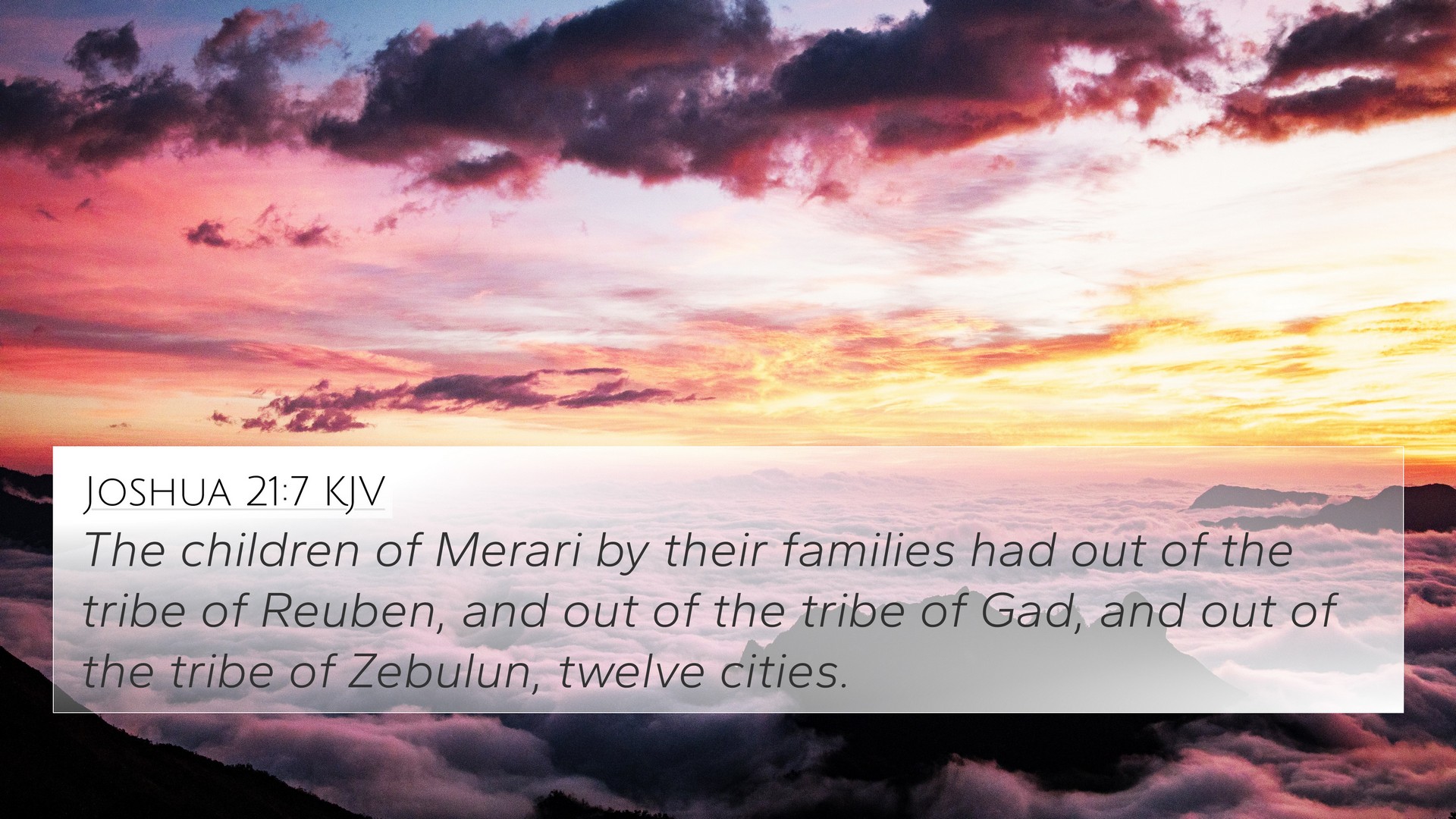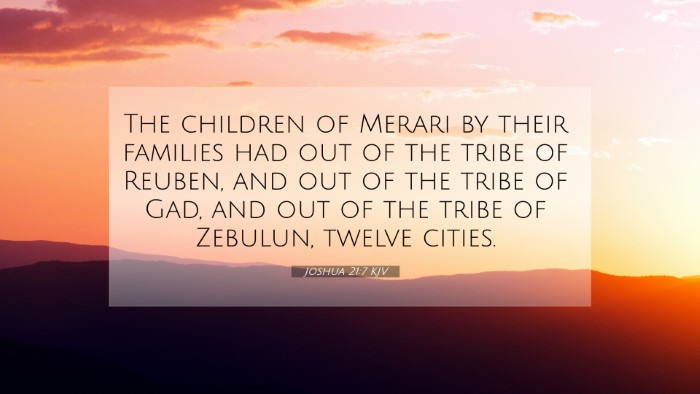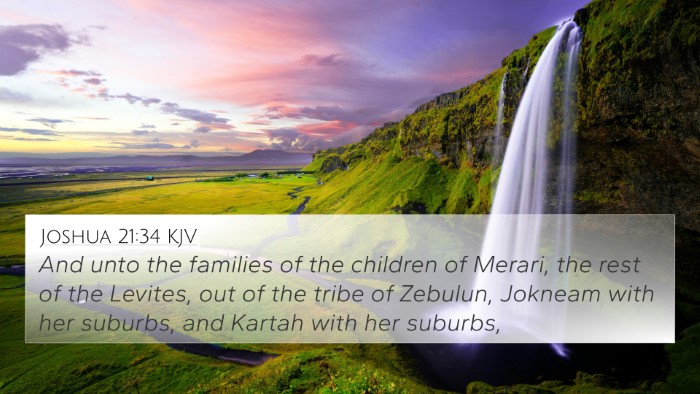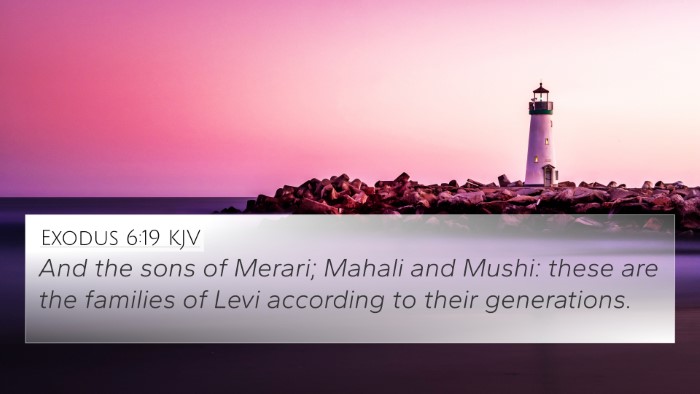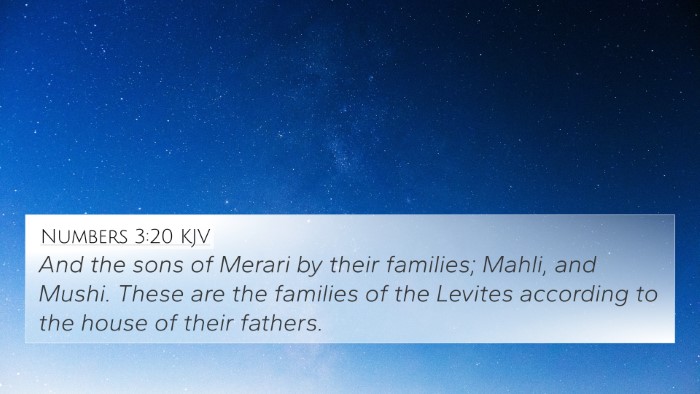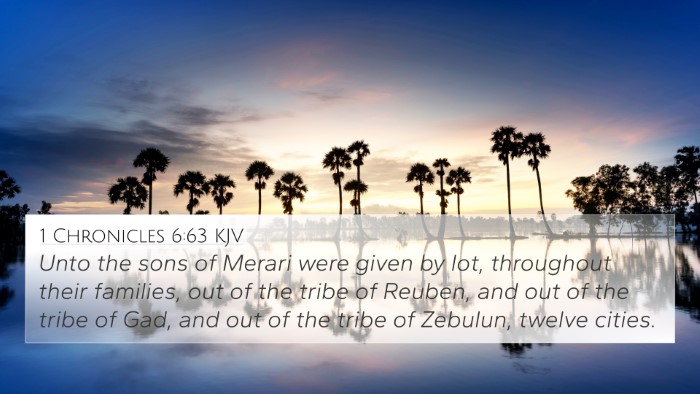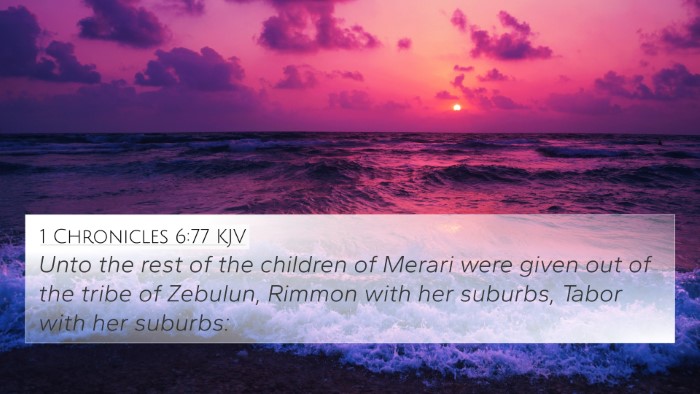Bible Verse Meaning: Joshua 21:7
Joshua 21:7 reads: "The children of Gershon had thirteen cities of their families." This verse highlights the allocation of cities to the Levites, specifically the descendants of Gershon, as part of God's promise to His people regarding the inheritance of the land of Canaan.
Contextual Overview
The book of Joshua details the transition of Israel from wandering in the wilderness to occupying the Promised Land. The Levites, chosen by God for priestly duties, were given specific cities rather than land as their inheritance, emphasizing their unique role among the tribes of Israel.
Commentary Insights
-
Matthew Henry:
Henry emphasizes the significance of the Levites' cities concerning their spiritual role. He notes that the Levites were not given a large portion of land like other tribes, as their duties were focused on ministry rather than agricultural pursuits. This allocation served to ensure that they were spread throughout Israel, providing access to spiritual guidance.
-
Albert Barnes:
Barnes points out that the number of cities given to the Gershonites reflects the fulfillment of God's promises. The organization of the Levites in the land averted any neglect in spiritual matters, reinforcing the community's reliance on their service.
-
Adam Clarke:
Clarke elaborates on the selection process of these cities and the rationale behind their geographical placement. He concludes that these arrangements ensured that every tribe had access to the religious teachings and services provided by the Levites.
Bible Verse Cross-References
This verse connects well with several other Biblical texts that reflect similar themes of inheritance, priestly duties, and the division of land:
- Numbers 35:1-8: Discusses the appointment of cities of refuge and the Levites' cities.
- Deuteronomy 10:9: Mentions that the Levites have no portion nor inheritance with Israel.
- Joshua 14:3-4: Talks about how the Levites were assigned cities as their inheritance.
- Psalm 16:5-6: Reflects the importance of the Lord as the portion and inheritance of the faithful.
- Luke 10:1-2: Relates to the sending of the disciples, highlighting the importance of spiritual leadership.
- Hebrews 7:11-14: Discusses the priesthood of Christ, tying back to the Levitical priesthood.
- 1 Peter 2:9: Calls believers a royal priesthood, maintaining the theme of spiritual service inherited by all believers.
Thematic Bible Verse Connections
Joshua 21:7 underscores several significant themes found throughout the Bible:
- Divine Inheritance: Highlighted in various places, significant to understanding God's promises, such as Romans 8:17.
- Spiritual Leadership: A continuous theme leading to discussions on modern Christian ministry and service.
- The Role of the Church and Its Leadership: Relating New Testament applications based on Old Testament practices.
Cross-Referencing Bible Study Methods
Understanding Joshua 21:7 can benefit from various cross-referencing methods:
- Bible Concordance: Using a concordance to find related terms can uncover numerous connections.
- Bible Study Tools: Utilizing study Bibles that provide annotations can help with insights.
- Inter-Biblical Studies: Examining themes across both the Old and New Testaments enhances understanding.
- Discussion with Others: Engaging in group studies can lead to richer insights through dialogue.
Conclusion
In conclusion, Joshua 21:7 serves not only as a historical account but also as a foundational verse highlighting the significance of spiritual leadership and divine inheritance. By studying such verses in conjunction with others, we can deepen our understanding of Biblical themes and the way they interconnect across scriptures.
